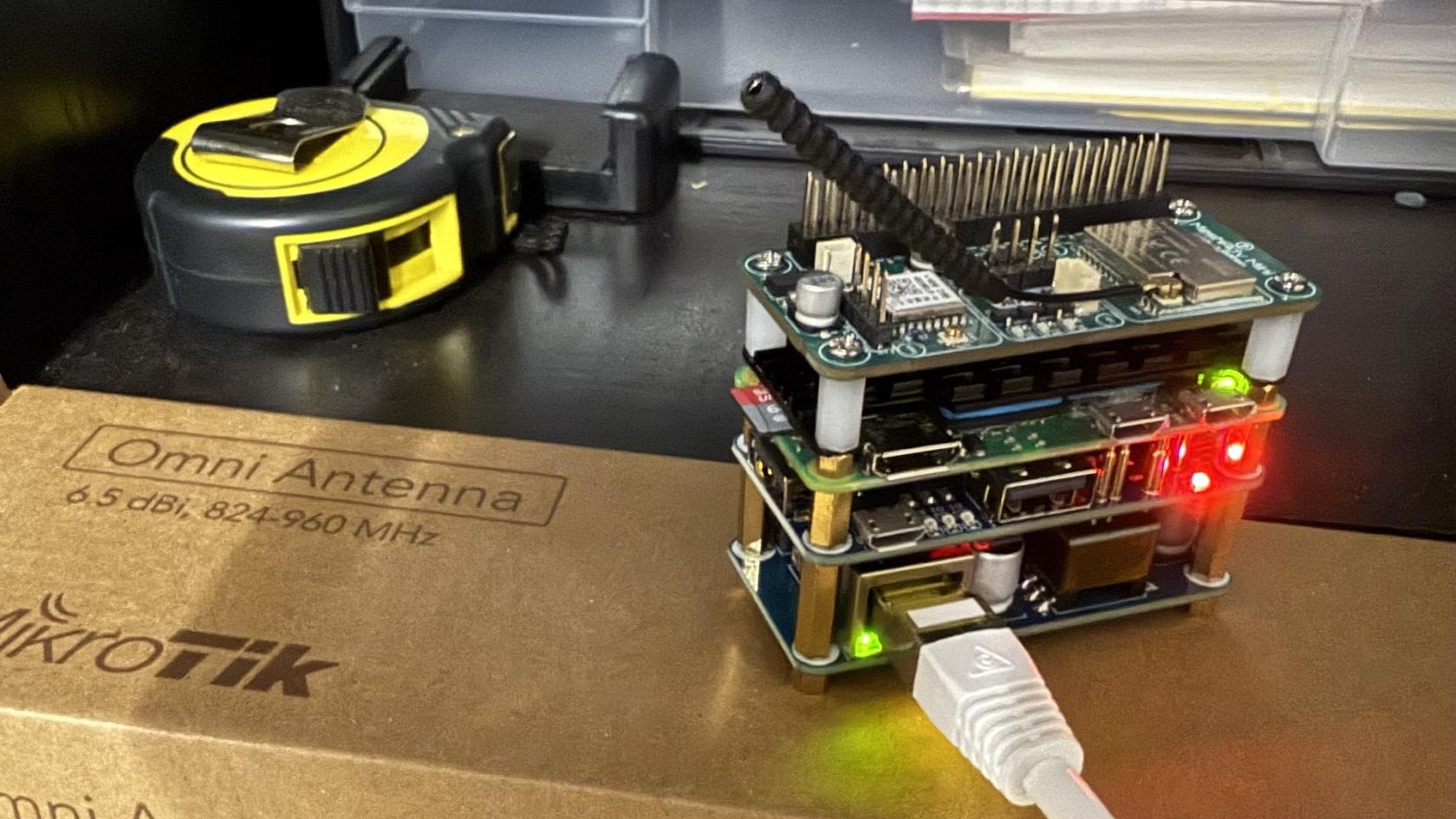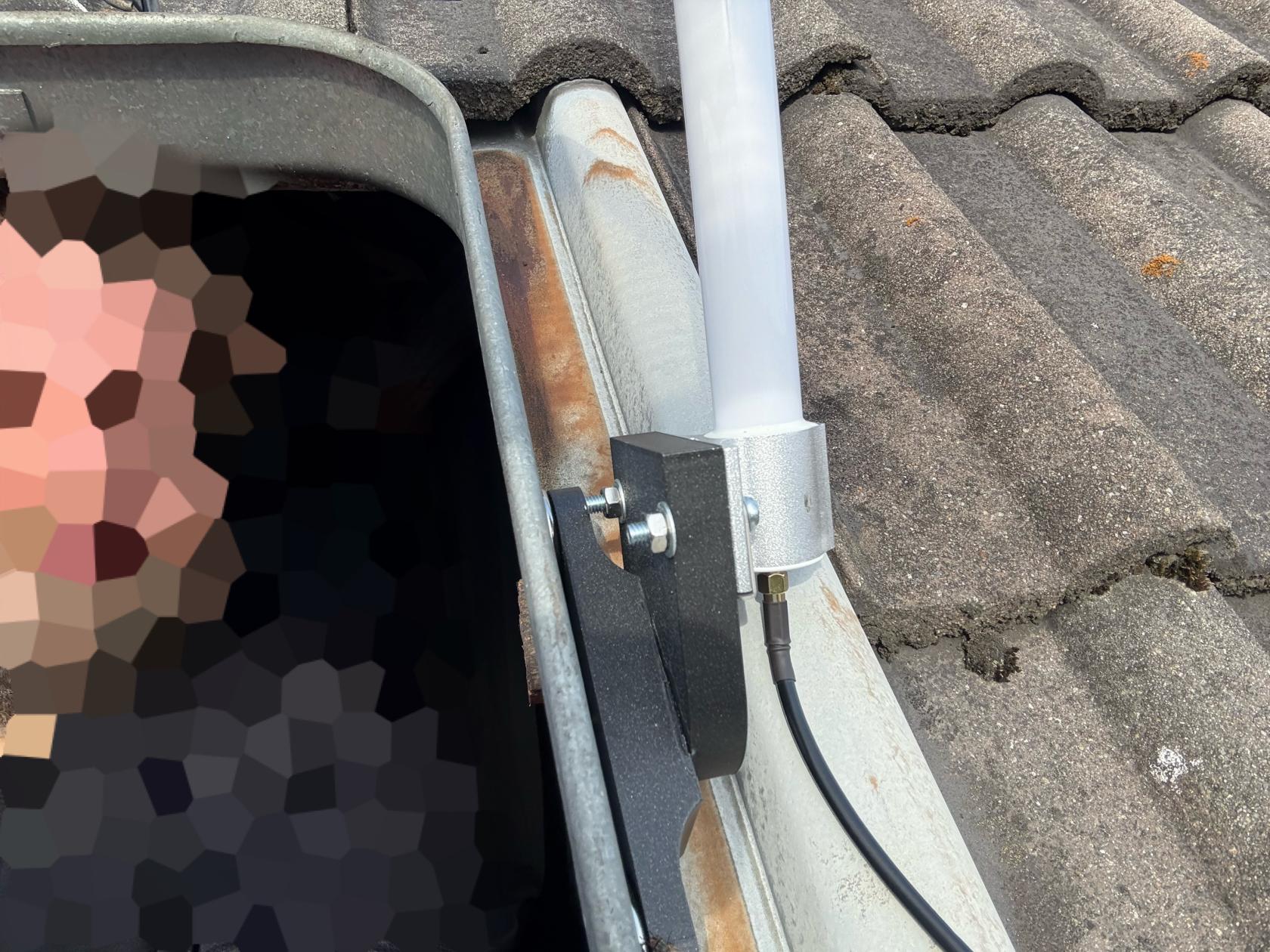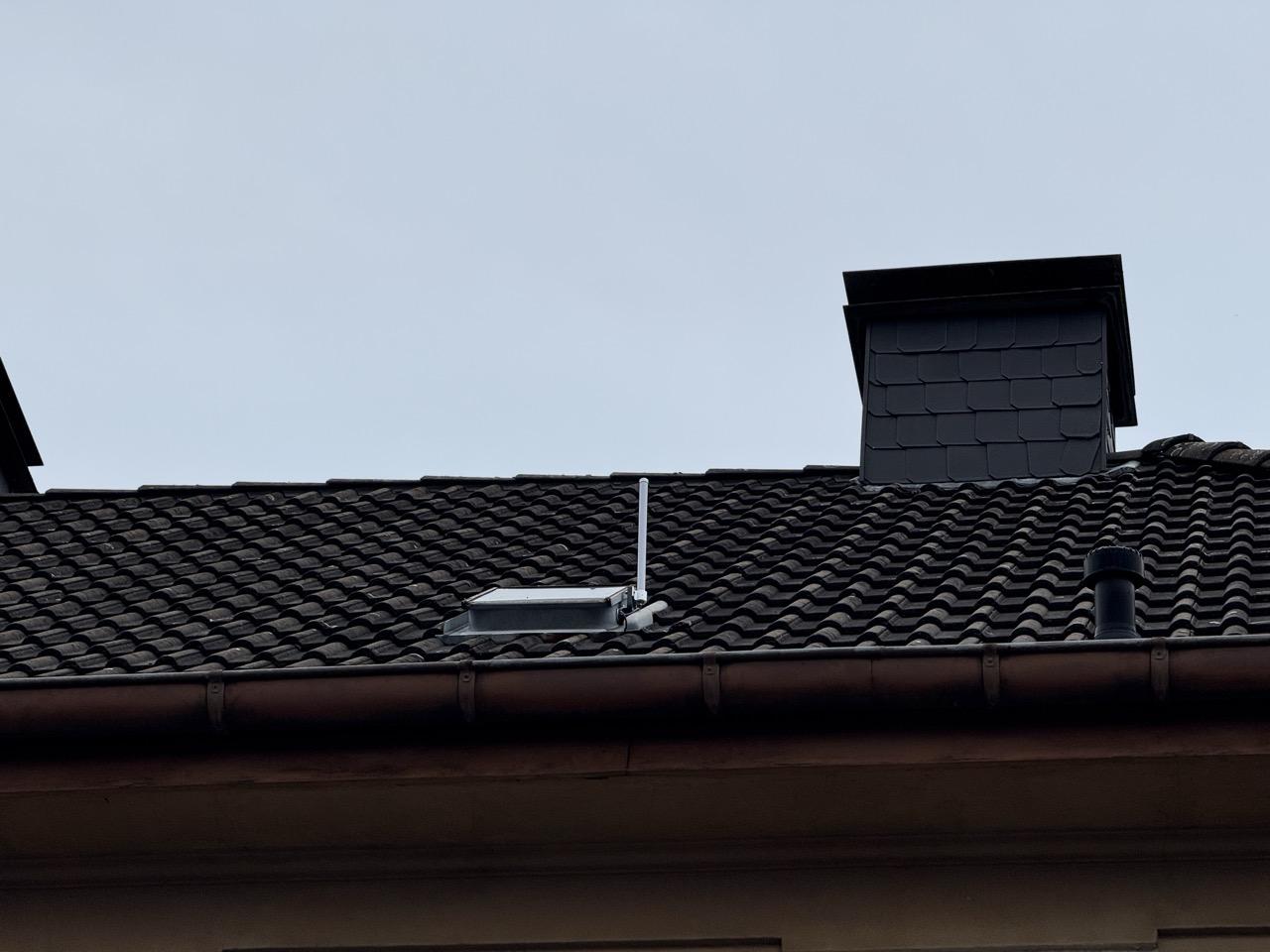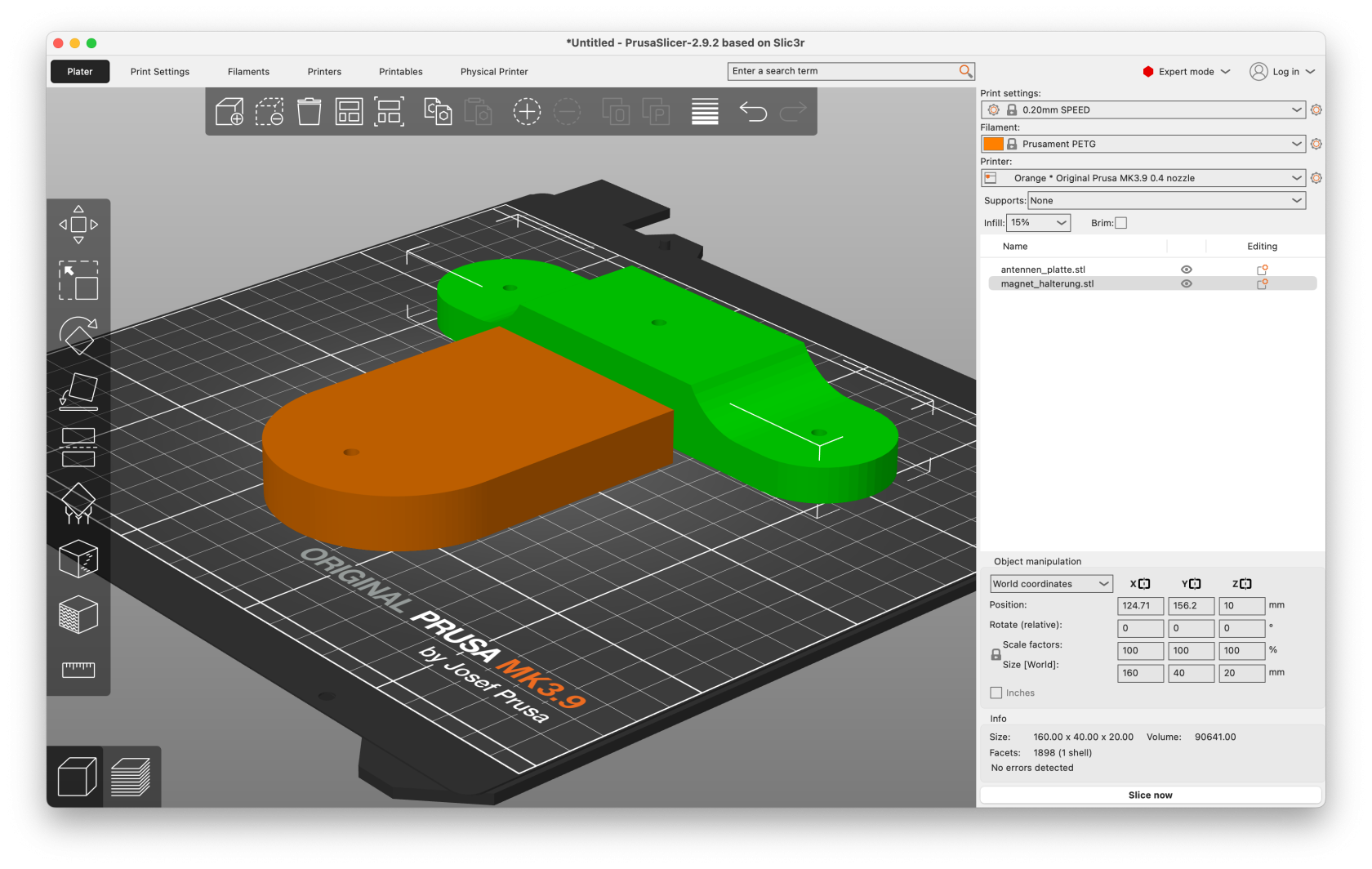Meshtastic Linux Native Client based on Raspberry Pi Zero 2
Since I won't be doing much more with Meshtastic ( I see the future in MeshCore), but still want to keep one node, I decided to move my home node to a different antenna. The node is now operating on the roof on the garden side with an ALFA antenna in a 3D-printed holder, so I can still observe how the Meshtastic network develops.
Below is the original article featuring the first antenna.
My DIY Meshtastic Home Node based on a Raspberry Pi Zero 2, the Waveshare PoE Ethernet/USB HUB HAT, and the MeshAdv Mini Launch Edition: LoRa/GPS Hat. The node is operated in the attic, powered via POE, and an Mikrotik 868 Omni antenna is on the roof.
The goal was to have a reliable node that could be easily updated and configured via SSH. POE is ideal as a power source for this purpose, as it also provides a stable network connection for MQTT connections. The switch that provides POE is buffered via a UPS.
Antenna mount
Since I live in a rented house, I decided on a non-destructive way to install the antenna on the roof. There is a metal-framed skylight in the attic, so it was obvious to use magnets. I designed two 3D-printed parts in TinkerCAD to connect the antenna and the magnets.
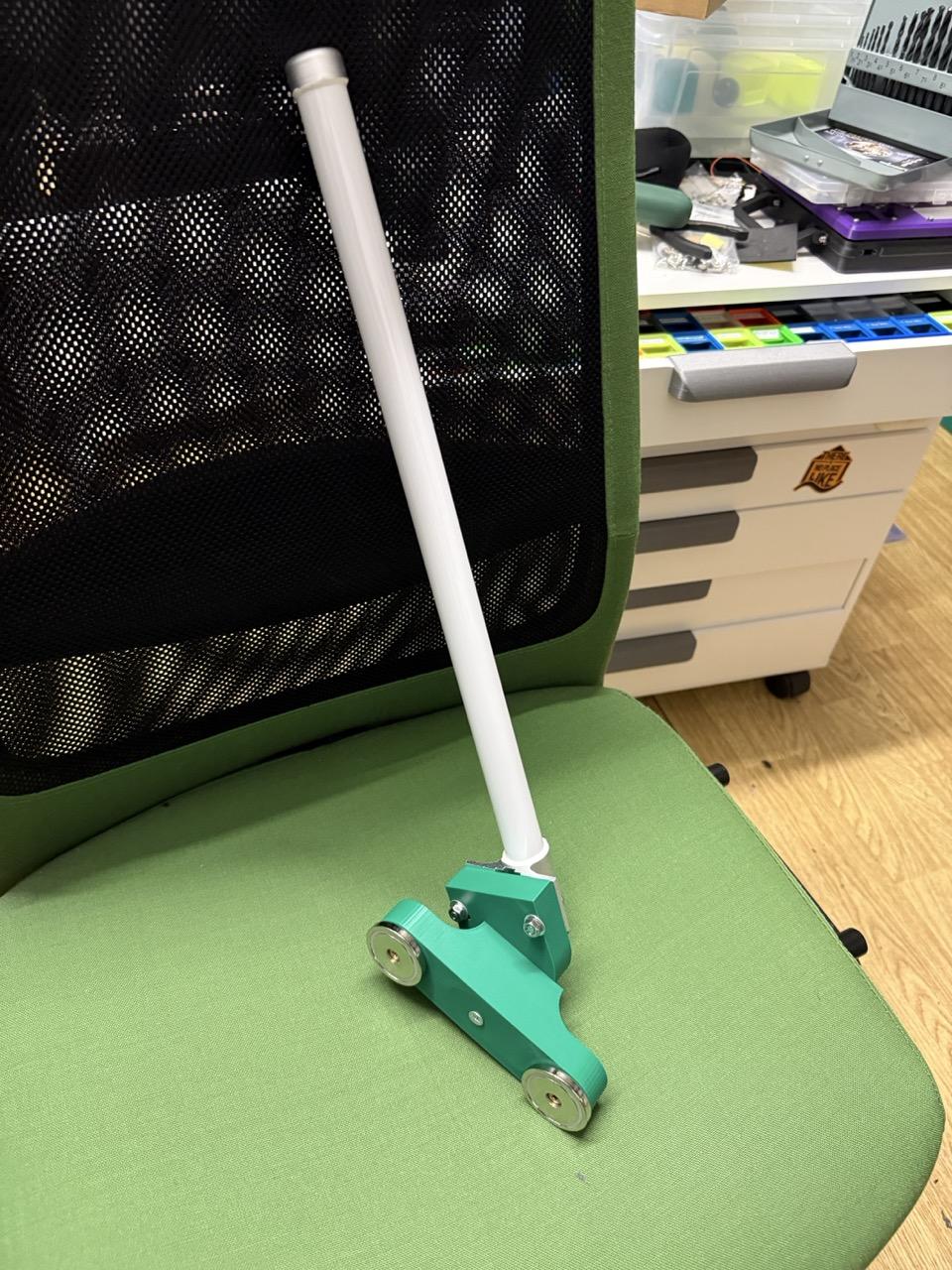
The first prototype wasn't a perfect fit, but it proved that the type of fastening was suitable. The second print produced perfect fitting plastic parts, which were then assembled. The magnets hold almost too well! 😎
|
The final product... |
... on the roof. |
The printed parts are made of PETG. I significantly increased the infill at the connection points compared to the rest. Once everything was in position, I also glued the two parts together.
| download .STL: antenna plate | download .STL: magnet mount |
I bought these magnets on Amazon. Apparently, people use them to fish for metal parts in ponds and rivers. Anyway, it was important to me that the magnets had a hole and were strong. These magnets fulfill both requirements.
Software setup
Since I use the wonderful MeshAdv Mini HAT, it made sense to also use the Meshtasticd-Configuration-Tool published by the same developer to set up Raspberry Pi OS & Meshtasticd. It was refreshingly simple; I only had to activate the web server outside of the tool in /etc/meshtasticd/config.yaml:
Webserver:
Port: 443 # Port for Webserver & Webservices
RootPath: /usr/share/meshtasticd/web # Root Dir of WebServer
SSLKey: /etc/meshtasticd/ssl/private_key.pem # Path to SSL Key, generated if not present
SSLCert: /etc/meshtasticd/ssl/certificate.pem # Path to SSL Certificate, generated if not present

